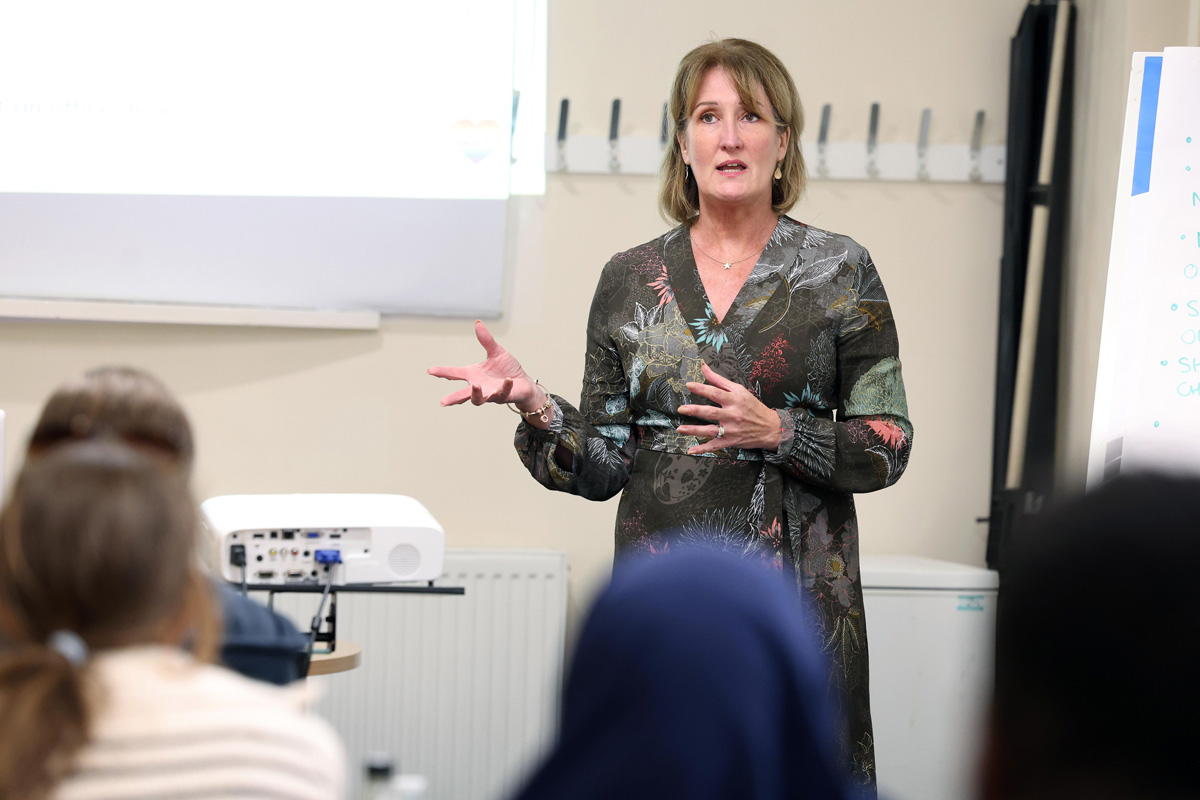Only 2% of teachers working in the most disadvantaged communities believe all their pupils have adequate access to devices for home learning

Teach First are calling on internet providers and technology companies to increase access to online learning for children in the poorest communities.
A new survey from the education charity Teach First has found that only 2% of teachers working in the most disadvantaged schools believe all their pupils have adequate access to devices, such as laptops and tablets, for online learning. This is four times less than teachers working in the most affluent schools (9%) and three times less than the national average (7%).
The survey, carried out by TeacherTapp, also found teachers working in the country’s most disadvantaged schools are six times less likely to think all their pupils will have adequate access to the internet compared to teachers working in the most affluent schools (2% vs 12%). This compares to a national average of 8%.
The survey also found that:
- A quarter of teachers (25%) working in the country’s most disadvantaged schools think at least a fifth of their pupils do not have adequate access to a device for online learning at home. This compares to 4% of teachers working in the most affluent schools and 7% of all teachers.
- A fifth (19%) of teachers working in disadvantaged schools say one in five of their pupils do not have adequate access to internet, compared to 2% of teachers in the most affluent schools and 9% of all teachers.
- In the most affluent schools, 62% of teachers think that no more than 2% of their pupils will struggle with internet access when learning from home. Compared to only 17% of teachers at the most disadvantaged schools.
Disadvantaged pupils are on average 18 months behind the rest of the class in academic achievement by the age of 16 and Teach First is warning that these pupils need additional resources to prevent the attainment gap from increasing.
The charity is there calling for:
- Telecommunications providers to offer free access to WiFi hotspots, lift data caps and undertake a national effort to install broadband in the homes of students that do not currently have access to broadband.
- Technology companies should also look to either donate or offer free leasing of internet-enabled devices until students can return to the classroom.
- Energy companies to provide electricity for disadvantaged pupils to learn from home.
This analysis comes a week after headteachers that form Teach First’s National Schools’ Forum wrote an open letter to the Secretary of State, Gavin Williamson, calling for immediate action to ensure pupils from disadvantaged backgrounds are not left behind in the wake of school closures.
Russell Hobby, CEO of Teach First said:
“Home schooling is difficult for any family, but for children with limited access to a laptop or the internet the barriers to studying are much greater. These figures show we need to stand behind disadvantaged young people now, or else the gap in achievement and opportunity between the rich and poor will rapidly widen.
“All teachers and parents are working hard, but they need wider society’s help to make sure the most vulnerable children don’t get left behind. That’s why we’re calling for telecommunication providers and technology companies to play their part and think creatively and swiftly about what can be done to ensure all children receive a fair education through this unprecedented challenge.”
Lizzie Pocklington, science teacher at Nottingham Academy said:
“Sadly many of my pupils simply don’t have access to the internet or devices to help them study at home. We’ve been working really hard to print out home learning packs and send them to students who can’t get online, but it’s making an already challenging job even harder – and I’m worried they’re going to fall behind other children.
“I’ve called parents of pupils in this situation, to offer the best guidance and advice on how to revise at home without the online tools. They’ve been so appreciative that we’re checking in on them, making sure everyone is safe and well, it really encourages a great sense of community resilience.
“In an ideal world we’d be having daily phone calls with students who can’t access online resources – but that just isn’t logistically possible. For now, we just have to try and ensure that they’re learning the best they can with what they have at home.”
Letter from the Teach First National Schools’ Forum to the Education Secretary
The Teach First community calls for more action to ensure children from disadvantaged backgrounds are not left behind during this challenging time:
20 Mar 2020
Dear Education Secretary,
Society faces a unique challenge and the children and families in disadvantaged communities will face the greatest struggle.
Many schools will close. But teachers in disadvantaged areas across the country are stepping up to make sure that no child is left behind. As we plan ahead for how, as a country, we recover, teachers, support staff and education will surely be at the heart of these efforts.
Building on the steps you’ve taken so far and building on feedback from our fellow headteachers we’re calling for:
Support for disadvantaged children to learn at home
- Internet providers to lift data caps for vulnerable households.
- Technology firms to provide safe devices for children most in need to be able to study.
- Energy companies to provide electricity for disadvantaged pupils to learn from home.
Clarity on funding for free school meals provision
- Your steps to ensure pupils do not go without free school meals is welcome, urgent clarity on the process of reimbursement and when schools will be able to access funds is vital.
- Quick access to free meals for pupils in families who fall into poverty in the months ahead will be essential.
Fair exam grades
- Many young people face uncertainty about their exam grades and futures. We must ensure that steps are taken to award grades fairly and prevent further increases in inequality. Marks linked to past performance could disadvantage hard working pupils, teachers and improving ‘turnaround’ schools.
Long-term support to recover
- When schools return support must be weighted towards those serving disadvantaged communities. This must be a priority to prevent the attainment gap between rich and poor pupils from growing.
We urge businesses, Government and wider society to keep supporting the drive to build a fair education for all.
Sincerely,
Anna Hennell James and Jason Ashley, Co-Chairs, Teach First National Schools’ Forum.
*Teacher Tapp surveyed 6,249 teachers in schools across England. The results were reweighted to ensure representativeness.











Responses